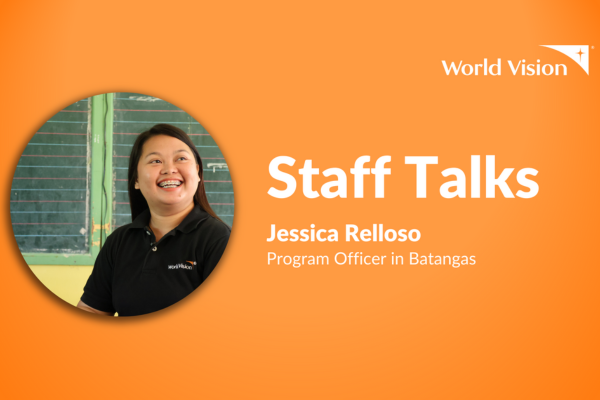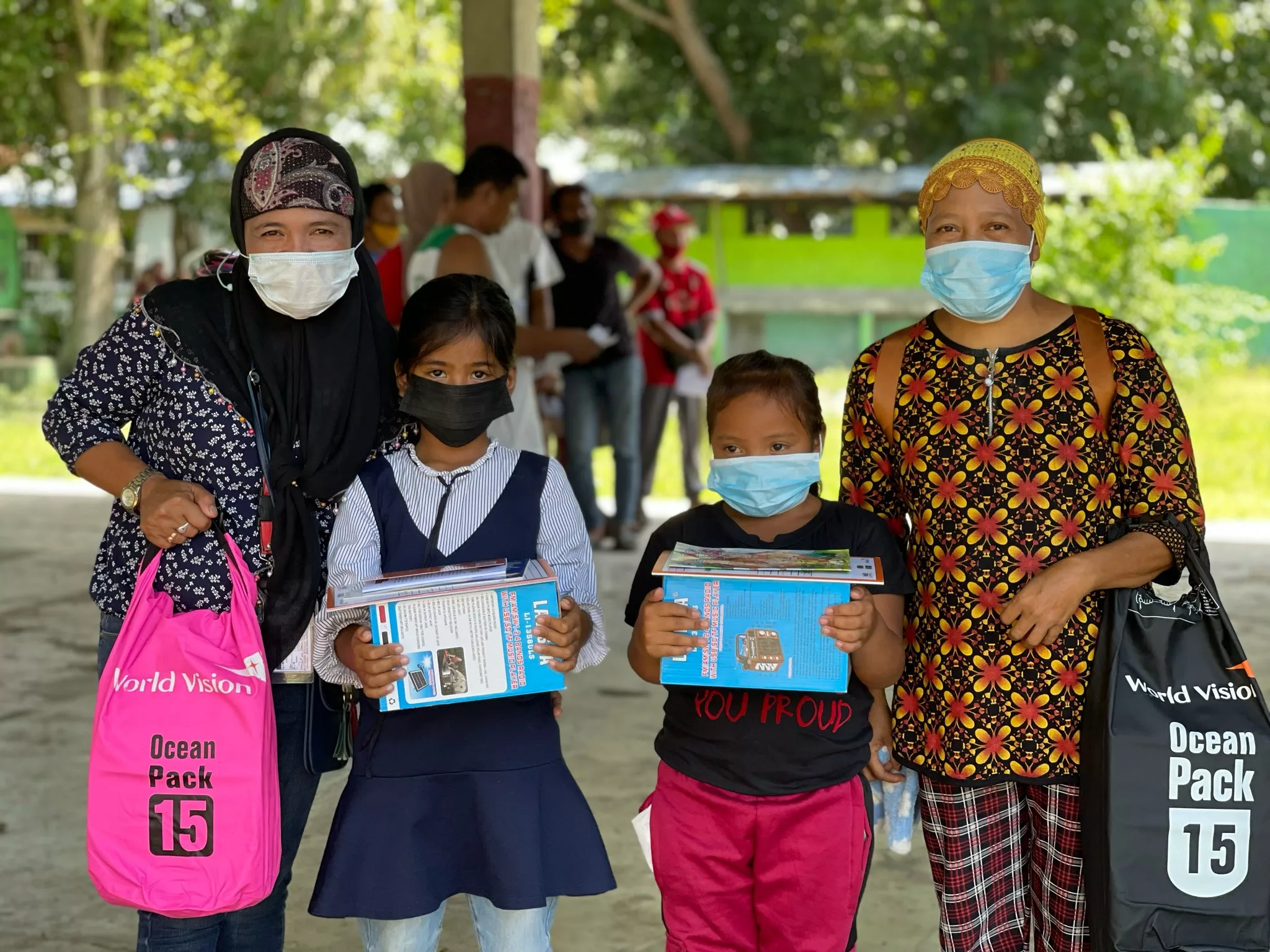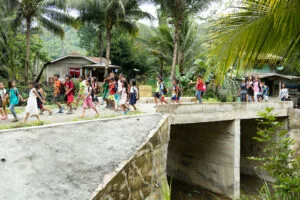‘Children here don’t go to school in shoes’
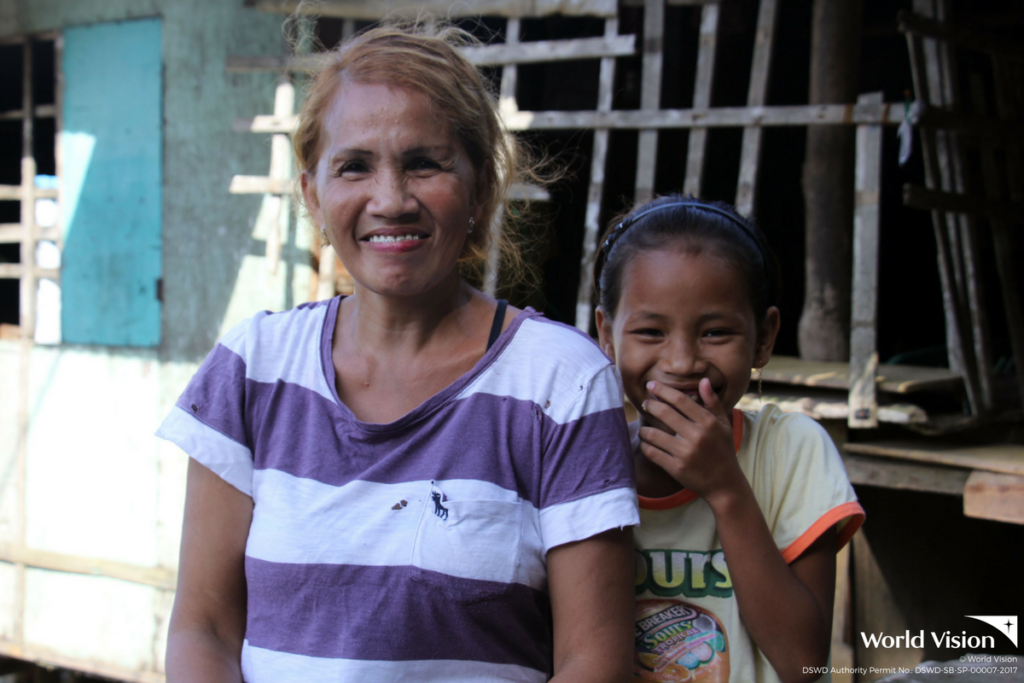
Laila, 48, sits on a small, wooden chair, polishing a woman’s nails. “One of my daughters,” she introduces. While still cleaning her daughter’s nails, a boy in a bicycle passes by, shouting, “Ate Laila, my mother asks for you to come to our house.” After several minutes, three more women approached her, asking her to do their nails as well. Laila is lucky today.
Giving manicure and pedicure service is Laila’s part-time work, where she earns Php100 per customer. She uses these earnings to augment for the income her husband, Roberto, 49, makes from driving a tricycle they rented. Sometimes, she accepts laundry and gets Php150 for washing around six to eight kilos of clothes. “My customers are usually fishermen. They want their shirts to not smell like fish,” she shares.
Laila has eight children, six are going to school and two already have families. She admits that they have a complicated family set-up. Her eldest son was separated from his wife who lives in a nearby town. Her eldest daughter re-married after her husband died from fishing. Both had since found a new partner. Three of her grandchildren preferred to live with her. Their grandchildren call them “mama” and “papa.”
With six young school-aged children and two teenage sons to feed, the couple has to work doubly hard. Laila says that although they are able to have food on the table, it’s the everyday house and school needs that consume most of their budget. Before class starts, Laila has to buy the six kids’ school needs which is estimated to be around Php6,000, an amount that she and her husband cannot easily provide. Laila usually has nearly Php3,000 to spend for the children’s school needs.
“What I do is buy each child five notebooks and a few pencils. Sometimes, I buy them new uniforms. If not, then they have to use the old ones. Their school doesn’t require children to be in uniforms all the time. We seldom buy shoes. Children here don’t go to school in shoes. But since Andrea will now be in Grade 7, she has to wear shoes,” Laila says.
Laila’s granddaughter, Andrea, a timid girl with a lovely smile, is a World Vision-assisted child. “Andrea’s sponsor annually sends her financial assistance that we use to buy school supplies. We were able to also repair our house because of her sponsor’s generosity,” Laila shares, referring to the house roof, walls and concrete poles the family gradually repaired from the sponsor’s gifts.
In a recent graduation rite, Andrea received a Perfect Attendance award, which means she unfailingly went to school for 221 days, uncommon in her village where children usually skipped school due to financial reasons, lack of motivation or family matters.
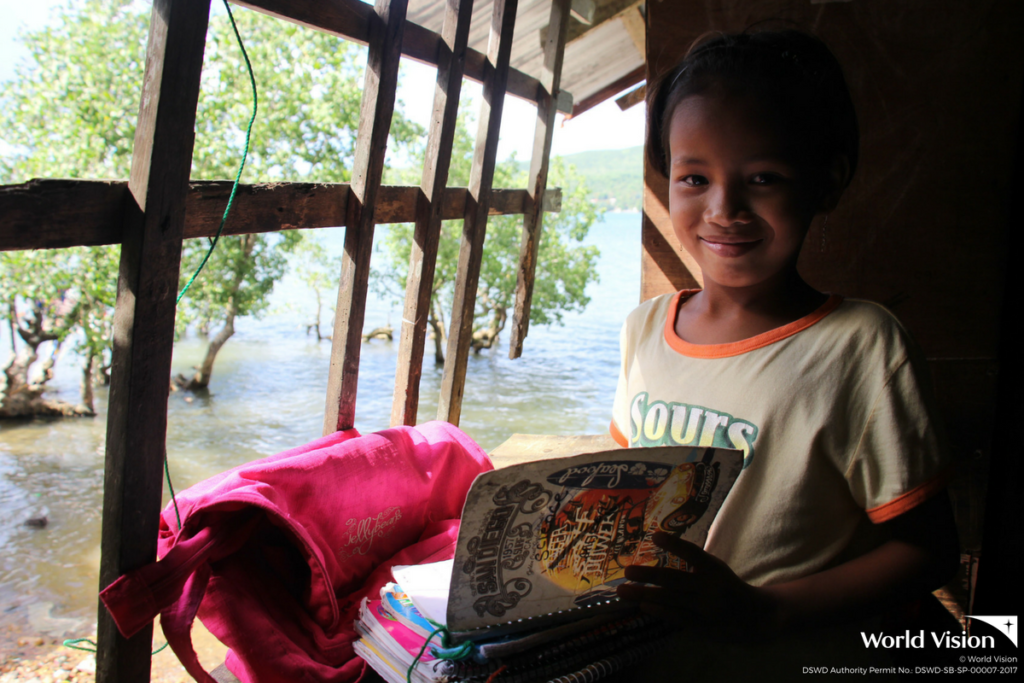
“I still go to school even when there is a typhoon days,” Andrea says.
Now that she’s in high school, she is getting closer to her dream of becoming a teacher someday, an inspiration she got from one of her teachers. “One day, I want to be kind to my students, too,” shares Andrea.
Though the family receives financial assistance as well from the Philippine government’s conditional cash assistance called Bridging Program for the Filipino Family (4Ps), Laila admits that Andrea’s sponsor helps the family make both ends meet. “Without her sponsor’s assistance, we’ll probably be in deep debt today,” says Laila.
World Vision/May 3, 2018
Sponsor a Child today
World Vision is a global Christian relief, development and advocacy organisation dedicated to working with children, families and communities to overcome poverty and injustice. World Vision serves all people, regardless of religion, race, ethnicity, or gender.
Stay up to date with World Vision Philippines! Follow us on Facebook, Twitter and Instagram.




